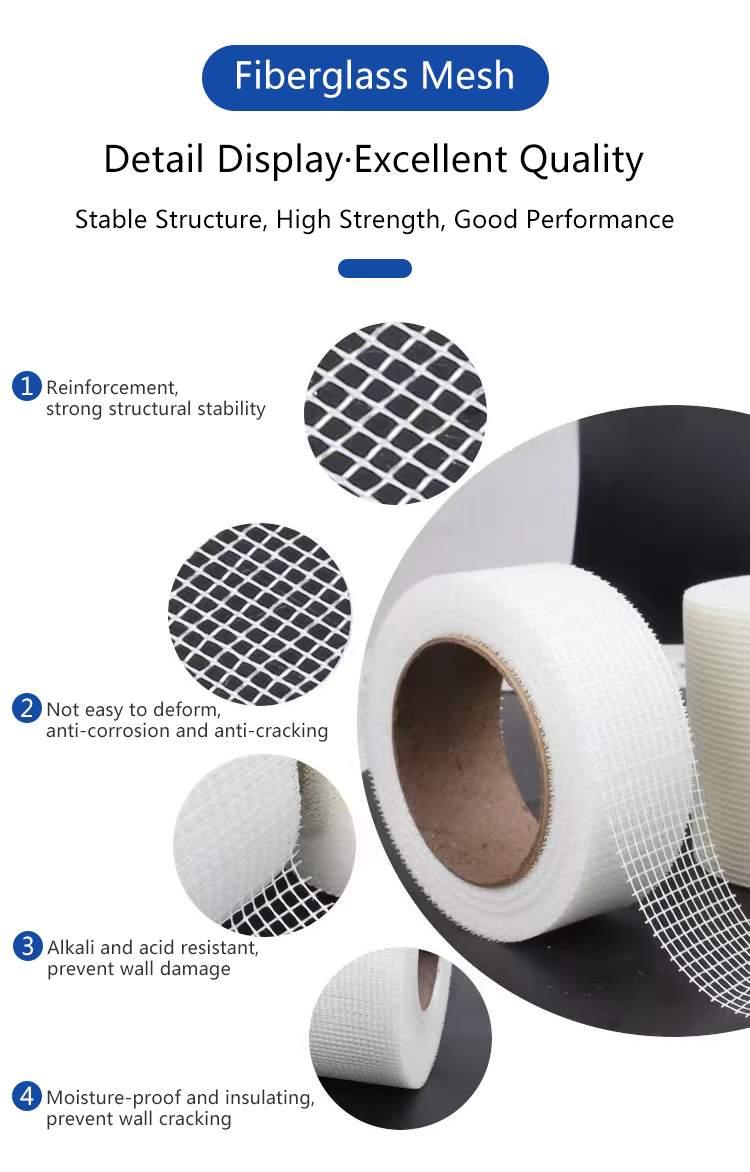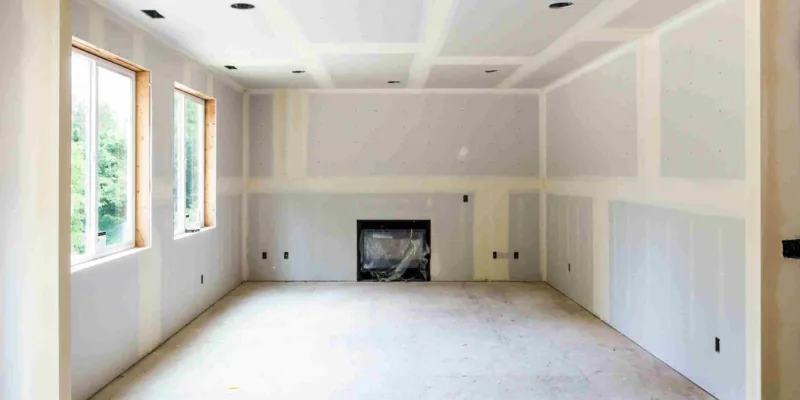- +86-13775339109
- Jessica@nq-fiberglass.cn
- No 61 Fangxian, Danyang, Jiangsu
Looking to choose the right drywall tape for your project? Whether you’re repairing a small hole or finishing a large drywall installation, the type of tape you use can make all the difference in the final result.
In this article, we’ll break down the pros and cons of mesh tape and paper tape, so you can decide which one is best for your needs. We’ll cover their ease of use, durability, and suitability for different projects, helping you achieve a smooth, professional finish every time. Ready to make an informed choice? Let’s dive in.
Table of Contents
ToggleMaterial and Structure
Mesh tape is made from fiberglass, giving it a strong and flexible structure. It comes with an adhesive backing, which makes it easy to apply without needing additional bonding agents.
Common Use Cases
Mesh tape is commonly used for drywall repairs and DIY projects, especially in smaller spaces or for quick fixes. It’s ideal when you’re tackling a repair job and want a fast, reliable solution.
Benefits
Drawbacks
Mesh tape is a great choice for fast repairs or smaller DIY jobs. But, if you’re working on larger, more complex drywall installations, you might want to consider other options.

Material and Structure
Paper drywall tape is a traditional option made from a sturdy, flexible paper material. It often features a creased center, making it especially useful for corner joints, where a seamless finish is crucial.
Common Use Cases
Paper tape is commonly used for new drywall installations or larger professional projects. It’s preferred by contractors for its ability to create a strong, smooth finish on large areas and complex joints.
Benefits
Drawbacks
While paper tape is a solid choice for larger projects or areas that need durability, it might not be the best option for beginners or those seeking a quick fix.

Moisture Resistance:
Paper tape is less resistant to moisture compared to mesh tape, but it can still perform well in damp areas if paired with moisture-resistant joint compound. It’s important to ensure the compound dries properly to avoid issues in humid conditions.


Feature | Paper Drywall Tape | Mesh Drywall Tape |
Ease of Use | Requires a layer of joint compound underneath for adhesion. This can be tricky for beginners but ensures a stronger bond. | Has an adhesive backing, making it easy to use without needing joint compound. Ideal for DIYers or quick fixes. |
Durability | Known for its strength. Once the compound sets, it creates a reinforced bond that won’t crack or peel easily. Ideal for larger jobs and high-stress areas. | Flexible but not as durable as paper tape. Best for small repairs and flat seams, but not suitable for high-stress areas. |
Project Suitability | Best for large projects or professional work, especially where a smooth, long-lasting finish is needed. | Ideal for small projects or repairs like patching holes or working on seams that won’t experience much stress. |
Adhesion, Strength, and Flexibility | Strong adhesion once the compound is applied, but less flexible. Provides extra reinforcement for corners and high-traffic areas. | Easier to stick due to adhesive backing but not as strong. More flexible, which helps it conform to different seam shapes, but lower strength. |
Moisture Resistance | Less moisture resistant but performs well in damp areas when paired with moisture-resistant joint compound. | Made from fiberglass, which is more resistant to moisture than paper tape. Ideal for moist areas like bathrooms and kitchens. |
Choosing between mesh tape and paper tape depends on the size of the job, the stress on the joints, and the desired finish. Here’s when to use each type of tape:

Choosing the right drywall tape comes down to your project needs. Here’s how to decide:

Now that you know which drywall tape suits your project, it’s time to take the next step toward a flawless finish. Whether you’ve chosen mesh tape for quick repairs or paper tape for a more durable result, the right materials are key to success.
Ready for the next step? Check out our Step-by-Step Guide to a Smooth, Professional Finish. It will walk you through the process of finishing your drywall like a pro, ensuring smooth seams and a clean, polished look every time.
Connect with an NQ expert to discuss your product needs and get started on your project.
Yes, mesh tape is ideal for quick drywall repairs and can help prevent future mold issues, but it may not be suitable for heavy-duty or high-stress applications.
Yes, drywall tape helps prevent cracks, particularly at the seams, by reinforcing the joints and providing added support.
While you don’t need specialized tools, using tools like banjos or automatic tapers can make applying drywall tape faster and more efficient.
Yes, mesh tape can be used on inside corners, though it’s generally less flexible than paper tape for achieving smooth, clean angles.
Mesh tape can last for many years, even potentially decades, when applied properly and in the right conditions.
Paper drywall tape is typically stronger than mesh tape, offering better durability and support for high-stress areas.